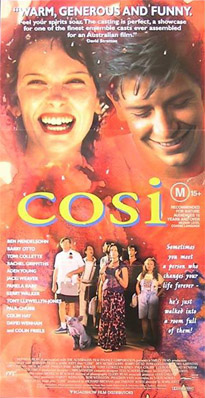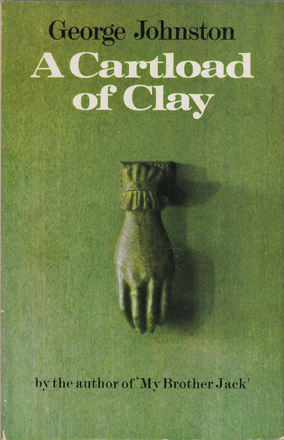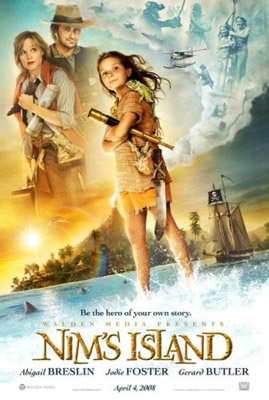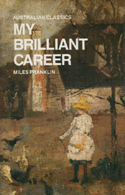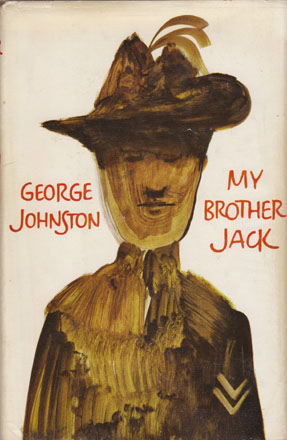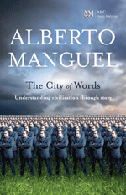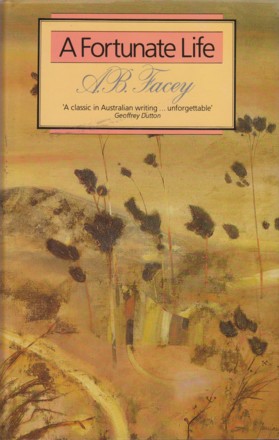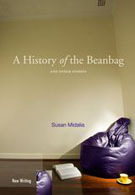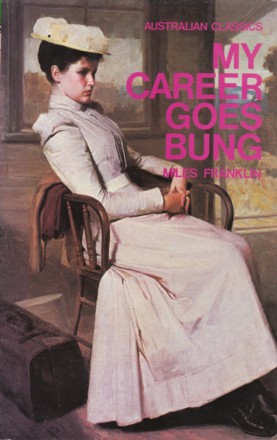For various reasons, I could not come to him, so he came to me. That was the first gracefully characteristic action that helped to reveal the man.
And here, I think, I should hasten to disown any implied analogy with a famous expedient of Moslem's accommodating prophet, which would certainly be ill-fitting, and, perhaps, a little lacking in proper modesty.
He came to us one the one bright day granted this usually well-favored spot in recent weeks, and it would hardly be a sentimental exaggeration to suggest that his coming seemed to have brought the sun.
He has that quality about him, too, and this may be said without indulgence of that sweet sickliness which Americans call "Pollyanna." So that one might reasonably have said, in reply to his conventional greeting: "All the brighter for having seen you, Mr Masefield."
So he impresses a man and a journeyman in the difficult but delightful trade of which he is a master, and so he impresses, I should imagine, every man who has the good fortune to meet him. As for the ladies -- well, some poets have that lucky way with them too.
On the day before he came to us it had been raining heavens hard. We were eager that he and his wife should see this little bit of our forest in its Sunday dress, but the bleak rain continued to fall as it listed, the wind to howl through the trees, for these elements seem no respecters of persons. But all the while the kindly sun was conscious of its duty and its friends. Had we known our visitors earlier we might have guessed that too, and been less apprehensive.
On that rainy day preceding the visit I found myself thinking back to a rather young, and slightly ambitious Australian writer toiling in a tiny bush hut among tall trees, a little lonely and forever dreaming of great things and great men worlds away.
Pinned upon the wall of that hut were various prints and photographs culled from illustrated papers; among them, the portrait of another youngish man with dark hair and a small dark moustache.
Even in that crude print the eyes of this youngish man bore an expression a little wistful, more than a little wise in the knowledge of men and life in rough, unsheltered corners of the earth, and a tolerant kindliness that such a knowledge must bring to one whose capacity for pity is great beyond the average. Yet, behind it all, was a hint of boyishness that had survived many a hard lesson of that hard master, life as the less fortunate majority knows it.
John Masefield had long been the first poet for me among England's living poets; and in that small bush hut I, in turn, learned many a lesson from him in the appreciation of beauty to be found in unsuspected places; so that gradually my own land began to take on for me a beauty revealed by a man who, at that time, had not yet seen it.
The best poets, I like to think, are born with that innate appreciation of beauty everywhere. Ambitious writers of rhyme find it laboriously, after they have first been shown the way.
But, in the days I now write of, not in my vaguest imaginings did I ever dream that it should one day be my good fortune to meet that youngish man of the portrait, grown older now externally and white with years, grown wiser, too, perhaps, but still with that air of kindly wistfulness, and, above all, with that delightful boyishness and rare simplicity that is reflected in most of his writing.
And that is, in my eyes, the revealing quality in John Masefield's personality -- a boyish simplicity, almost an ingenuous capacity for friendship with all men that neither the count of years nor hardest experience can ever kill. And the world and his friends are the happier for it.
Such qualities, I think, are essential in the make-up of every spontaneous singer of real worth. Burns had them, I should imagine, and every natural poet like him.
They are qualities that, for me, anyway, rank highest of all -- far above the acquired wisdom of men of deep erudition who know their fellow men only through biographies and histories, and all the superficial knowledge of mere bookworms.
On the day he came to us, I met John Masefield down in the valley. I stole him from the friends who had brought him from town, and, leaving them to go on ahead, drove him slowly up to the crest of the Great Divide to my home.
We spoke conventionally for the first mile or two - of local topography, of hills and altitudes -- and I wonder if he, too, was trying to gauge the measure of the man he had just met. But I imagine he did not bother about that. It is a curiosity largely indulged by secretive semi-hermits who meet few of the world's eminent men.
But as we began to climb the mountain into the forest, what restraint there was vanished rapidly as the yellow gold and crimson of young gum-leaves, translucent in the sun, began to border the roadside.
He had seen them not long before in the Cumberland, but our roadside is particularly rich in such displays, and he admired, enthusiastically.
We talked then about various moods and phases of the bush, and suddenly he introduced the subject of snakes -- had we many, were they very venomous, how many did we kill in a season? -- his interest was palpably evident and keen, and (assured I was not being politely led to a subject on which I could talk), I told him of a few thrilling encounters. I would like to think that he shivered deliciously.
He was so very keen on those crawling, dangerous things that spelt adventure. What boy would not be?
For once, I found myself wishing that out Australian bush harbored a few fierce carnivorae - lions and tigers, for example, even elephants would have given him a great kick, I imagine.
At lunch, the bush and its fauna were discussed, and the poet told us of the emancipated Turkey, a land he had visited lately, and Mrs Masefield spoke, a little longingly, I imagine of their home in the Cotswolds. Later the poet told us the story of a certain German gentleman and a dish of eggs, and on that managed to turn a real and graceful compliment to his hostess, and I spoke of his cow - which I imagined I had seen him fondling in a photograph. But the cow turned out to be a pony, and I was smothered in ridicule, and we were all boys and girls together.
After lunch we inspected the garden, bathed now in brilliant sunshine; and I came upon the poet round a corner deep in converse with the man whose labors help to make that garden beautiful -- an agricultural laborer not long out from Hampshire. Mrs Masefield asked him how he liked this country.
And then Australia got its genuine advertisement.
"Like it?" said the doughty gardener. "This country will do me, sir. Better off than ever I be."
Asked if he would not like some day to return to England, the man of spades and scythes smiled and shook his head.
"This will do me," he repeated. "I ask none better."
It seemed to me that, remembering that pleasant countryside, whose loveliness he has so well recaptured, the poet was just a little disappointed with this reply. But I, as an insular Australian, was well content, even a little maliciously triumphant.
In the room where I had taken the poet to inspect some curiosity, his eye lit on the various native weapons that hang about the wall -- spears, waddies, boomerangs, woomeras that came from the Arunta community.
Again the boy gleamed delightfully. He hefted the weapons, their use had to be explained, a native duel described -- "all bluggy!" By the more barbaric of those savage instruments he seemed fascinated. Again, what boy would not be?
In the garden again he affected to be unacquainted with individual flowers, even English flowers, and with the dry subject of botany generally.
It is a harmless deceit I have marked in many cultured Englishmen -- more especially artists and writers. Either they know their subject thoroughly or, knowing it indifferently, feign to be completely ignorant. Finally, and a little peevishly perhaps, I asked him if he had ever seen a daffodil. He considered for a moment, then said he thought he had, somewhere, once.
Then we sat together by the pool and yarned of many things and places, and sparingly of books and their making. When carpenters get together -- even a master and an apprentice - they do not harp on floor joints and barge boards.
He asked me of the conditions affecting book production here. I told him of writers here who published in London, of their difficulties, particularly of that iniquitous "Colonial Clause" that robs them of half their earnings. Immediately he volunteered to bring the matter up at the next meeting of the Authors' Club in London. It was altogether spontaneous: I had never remotely hinted that he might do so.
After that we went on to speak of rude, uncultured men in remote places -- he of the sea, I of Australia's hinterland, both of the deeply attractive, always revealing, sometimes heroic qualities to be discovered there. And so, I discovered that his experiences had run strangely parallel with my own.
I, too, had run away from home to engage in many strange and lowly occupations, endured a few hardships, risked a little security and life and limb among rough, tough men. But I said that now I was glad of it -- regretted nothing. It had helped me.
The poet looked at me out of those wisely wistful eyes of his.
"Is there any other way?" he asked quietly.
"Of course not," I agreed; and we went on then to speak of birds. Of his intense interest in these -- especially now, our strange Australian birds -- I have no space to write here. But he misses no chance to learn more of them.
Then, for the fourth or fifth time he got the talk back to that pool from which, in my obtuseness I had often switched the conversation. How did one make a pool? How long did it take? The cost? There was a certain stream running through a field in the Cotswolds; possibly one might -- What did I think?
I explained everything. And, in the not too distant future, I have no doubt a new pool will appear somewhere in the Cotswolds -- a quiet, secluded pool, fringed with tall lupins and buttercups and foxgloves and many flowers of which the white-haired, eager lad who planned it seems unable to quite remember the names.
By now the dipping sun, who had shone so continuously, so mindful of a friend, hinted that, delightful as the talk might be and, for one man, however great the occasion, there was yet none here as great as Joshua -- who was no poet, but a soldier.
So regretful adieus were made, many kindly last words spoken, and I was waving farewell to one I seemed to have known intimately all my life -- yet to no elderly gentleman, but to a white-haired eager lad with that wisely wistful look and, above all, with that rare simplicity and joyous air of indestructible youth and boyish enthusiasm.
And then - whether credited or not, it is the plain truth -- less than an hour after our interesting guests had left us, the sky clouded and the rain was once more with us.
First published in The Herald, 13 November 1934
John Masefield was Poet Laureate from 1930 until his death in 1967.
